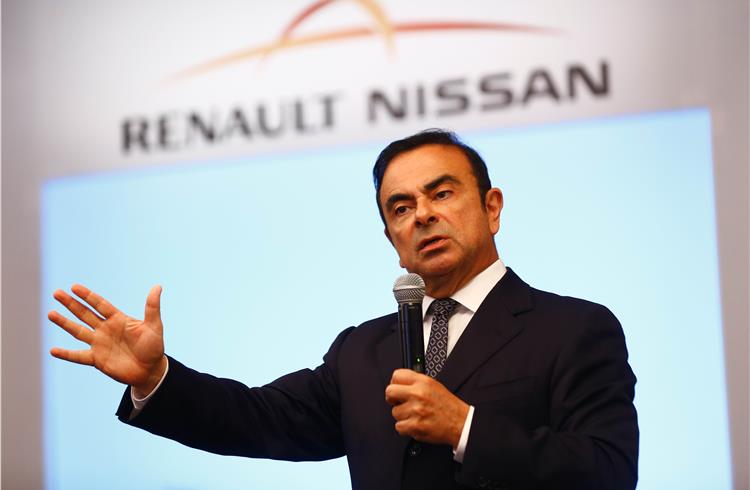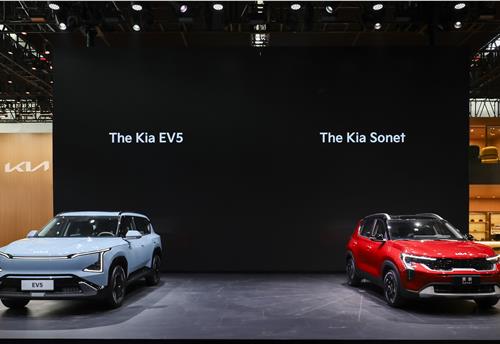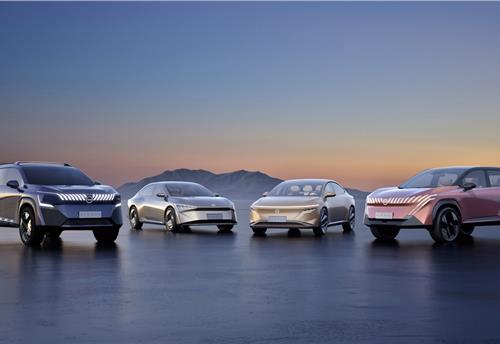European auto industry asks EU policy makers to rebalance CO2 programme
The European Automobile Manufacturers’ Association’s (ACEA) president, Carlos Ghosn, has underlined the importance of balancing the EU’s CO2 emissions reductions agenda and the auto sector’s global competitiveness.
The European Automobile Manufacturers’ Association’s (ACEA) president, Carlos Ghosn, has underlined the importance of balancing the EU’s CO2 emissions reductions agenda and the auto sector’s global competitiveness.
In a speech on June 12at ACEA’s annual general meeting, Mr Ghosn, who is also CEO of Renault, said: “As Paris and the world gear up for the COP21 global climate change conference, we must make sure that ambitious climate change policies do not conflict with the need to protect jobs and growth in Europe.”
The ACEA president’s call to EU policy makers coincides with the launch of a study by FTI Consulting on the potential effects of decarbonisation on the competitiveness of the European automobile industry.
Mr Ghosn stated, “No other industry sector has done as much as automotive to drive down CO2 emissions in recent years. EU political leaders should ensure equivalent conditions and targets for all industrial sectors in the future, taking actions where the greatest effects can be achieved at the lowest costs.”
By 2020 average emissions of new passenger cars will need to be reduced by 39% compared to their 2005 level. This compares to 10% reduction expected from other non-ETS sectors and 21% reduction expected from ETS sectors during the same timeframe.
Presently, CO2 reduction from road transport relies entirely on progress made in controlling emissions from new vehicles, even though new registrations make up just 5% of the fleet every year. The FTI study found that this system manages to be both expensive and ineffective because it does not address the bulk of the vehicles already on the roads. As it is, meeting the 95g CO2 target will cost manufacturers an estimated €1,000-2,000 (Rs 76,440-Rs 152,880) per car by 2020.
While being ambitious is positive, Mr Ghosn explained, overly-ambitious targets for Europe risk creating competitive disadvantages for the EU’s industry in the global marketplace, but without commensurate benefits.
“We believe that a balanced and comprehensive approach should make it possible to develop a policy framework that will allow us to drive down total road transport emissions further and faster,” argued Mr Ghosn. Welcoming the European Commission’s stakeholder dialogue on decarbonisation to be held on 18 June, he said: “At the same time, we need to work with policy makers to protect jobs and growth. We will work constructively with EU policy makers to make this a reality.”
RELATED ARTICLES
Kia displays EV5 and Sonet SUVs for Chinese market
Kia has unveiled a number of key models and new technologies for Chinese customers at the 2024 Beijing International Aut...
Nissan targets growth in China, unveils four NEV concepts at Beijing Motor Show
The two EVs and two plug-in hybrids are a joint effort with Nissan’s local partner Dong Feng and aimed to better address...
Lamborghini unveils Urus SE ahead of Auto China 2024
Electric-only range of 60km helps reduce emissions by 80%.





 By Autocar Pro News Desk
By Autocar Pro News Desk
 15 Jun 2015
15 Jun 2015
 2358 Views
2358 Views









